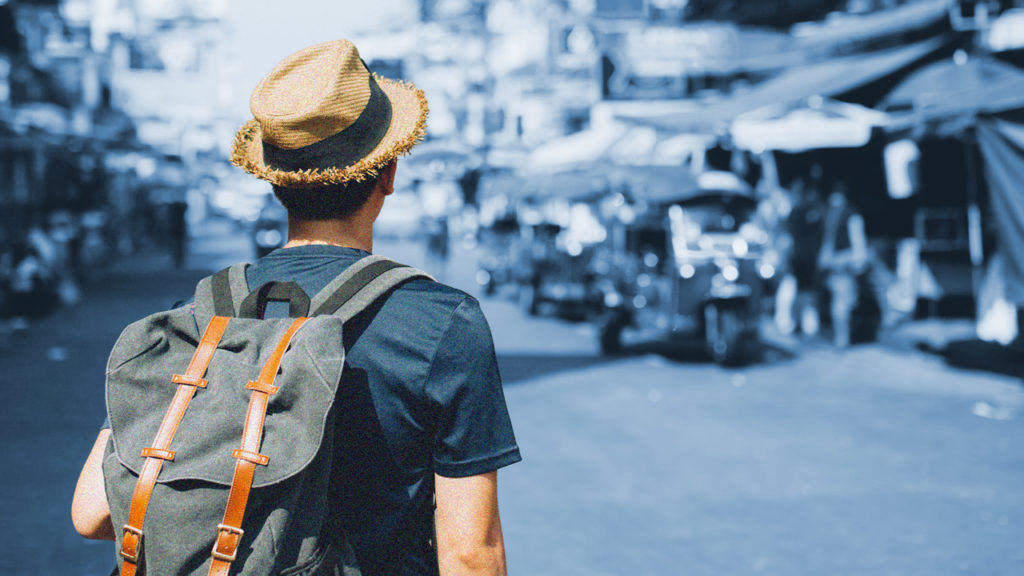The hotel industry is expected to close out 2021 down 500,000 jobs, a prediction that has prompted the American Hotel & Lodging Association to team up with Unite Here to call on Congress to pass the Save Hotel Jobs Act. The bill aims to support workers until travel returns to pre-pandemic levels.
Though half of Americans over age 12 are fully vaccinated and while some are ready to hit the road again, business travel—the largest source of hotel revenue—is down 85 percent and isn’t expected to slowly return until the end of this year.
Amid the industry’s sluggish rebound and growing adoption of contactless check-in services and digital keys, Marriott’s rewards program turned travel platform, Bonvoy, has launched a global campaign called “Power of Travel” calling on consumers to embrace the healing power of travel after a year of being confined to the walls of their homes.
With the tagline, “Where can we take you?” the campaign marks Marriott’s biggest full-funnel campaign and will come to life in an omnichannel media strategy comprising streaming and television spots, in-flight entertainment, display, digital, mobile, paid and owned social, and out-of-home placements.
The campaign’s 60-second spot features a diverse cast engaged in heartfelt travel moments with loved ones in international locales including Shanghai, Barcelona and Los Angeles. According to a press release, every aspect of the film was intended:
“Casting features a range of age, body type, race, ethnicity, skin tones, sexual orientation, abilities, gender, and more; wardrobe is done authentically through styling and clothing choices; cultural and experiential cues with key signifiers are weaved throughout; filming locations represent a global mindset; and storylines portray diverse perspectives and experiences, underscoring how travel is transformative – no matter where you come from, what you look like, who you love, and what your abilities are.”
The spots began on June 24, airing during the NBA Finals, and will also run during the Olympics. Additional TV and streaming highlights include Wimbledon and ESPN Monday Night Football. Some travel category firsts include Marriott utilizing shoppable connected TV to leverage mobile quick response codes with Hulu Gateway Go and Disney+, custom placements with HBO Max Brand Block and an ad takeover within a single show on Hulu.
Marriott is targeting Gen Z and millennials through mobile-first placements, including augmented reality filters on Snapchat. In collaboration with Pinterest, two storefronts in New York City’s Soho neighborhood will feature campaign creative that employs Pinterest’s technology that takes consumers to an immersive in-app quiz where they can learn more about the hotels within the Bonvoy portfolio.
Across social, Marriott is inviting travelers to share their images and videos via the #TravelMakesUs hashtag on Instagram and TikTok, the latter platform being a first for Marriott Bonvoy.
The “Power of Travel” is Marriott’s second campaign since COVID-19; the first was a global holiday campaign that launched in December last year. So far, it has launched in the US and Canada and will soon deploy in China, Australia, Europe and more international markets.
According to a press release, the campaign will extend into the fall with a mini docu-series that shows real traveler stories as they embark on journeys for the first time in a year.
Harris Poll research released in mid-May found that 77 percent of Americans plan to take a trip this summer and that 29 percent planned a leisure trip last summer. Fifty-two percent of Americans expect they’ll continue to have flexibility with remote school or work throughout the fall, which could mean more opportunities for travel during and beyond the back-to-school season.
While some hotel properties have yet to bring back their employees, others are busy filling roles to keep up with demand. One consideration most hotels have in common now, however, is whether their guests are willing to accept fewer services than before the pandemic—like daily turndown and breakfast buffets—according to analysts. This new shift could mean a smaller hotel workforce in the years following the industry’s rebound.

